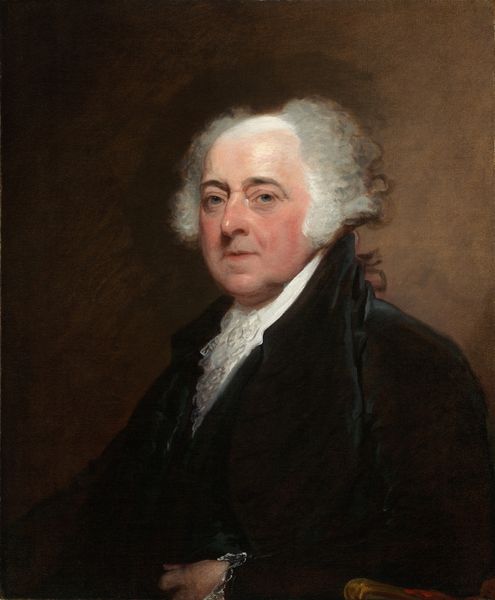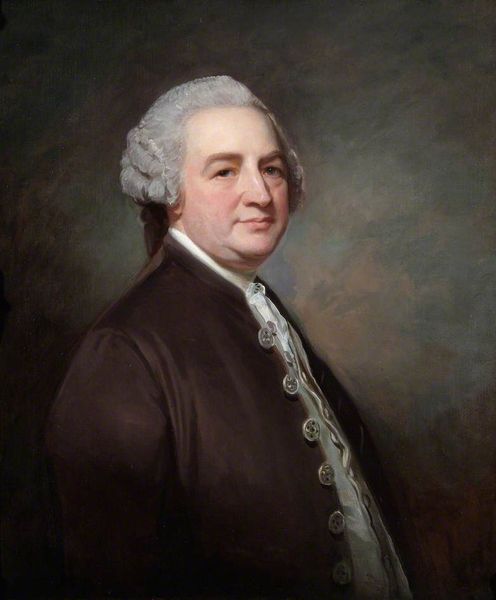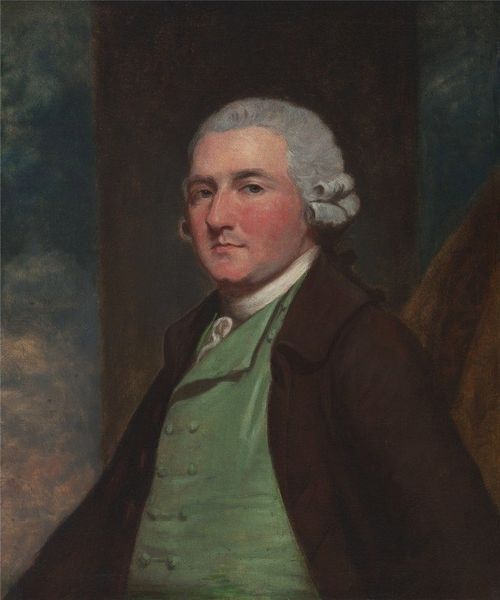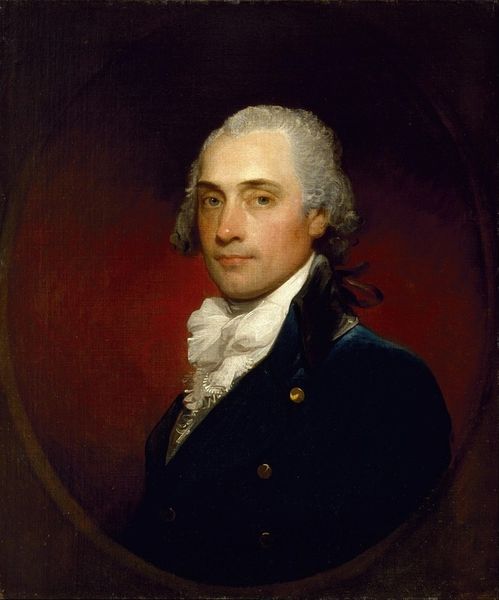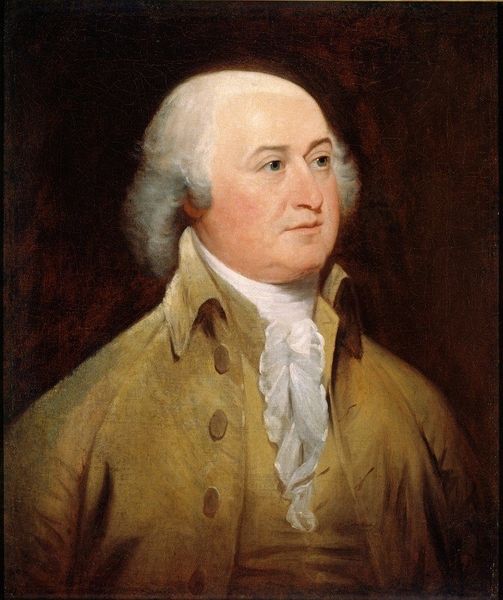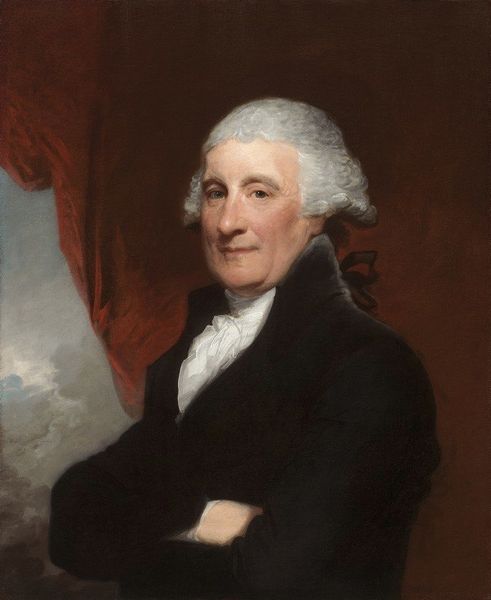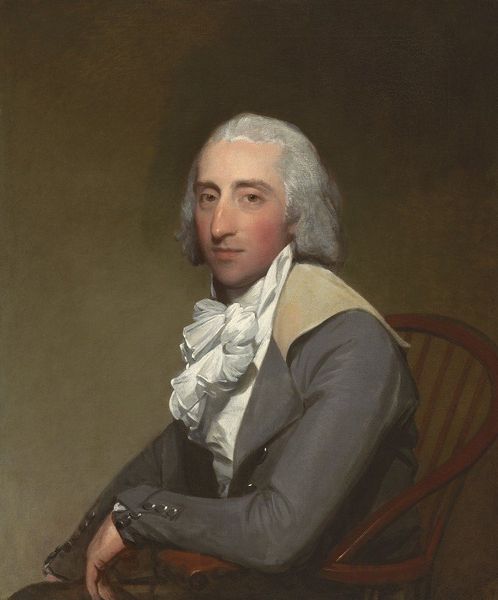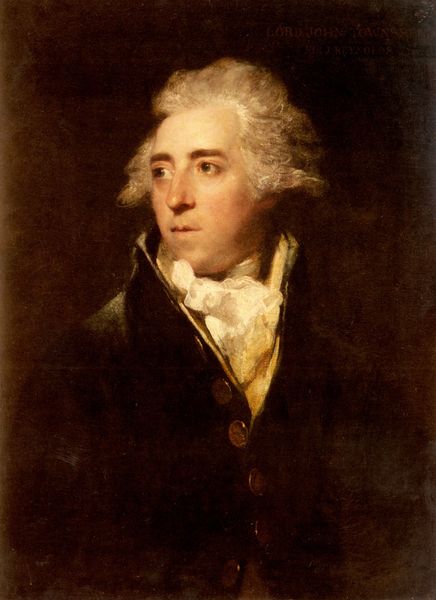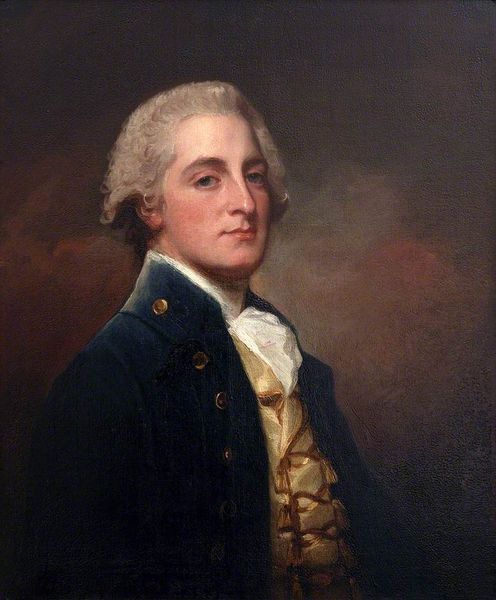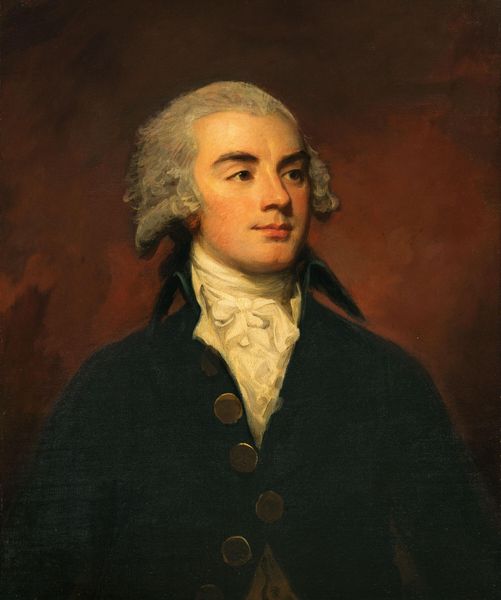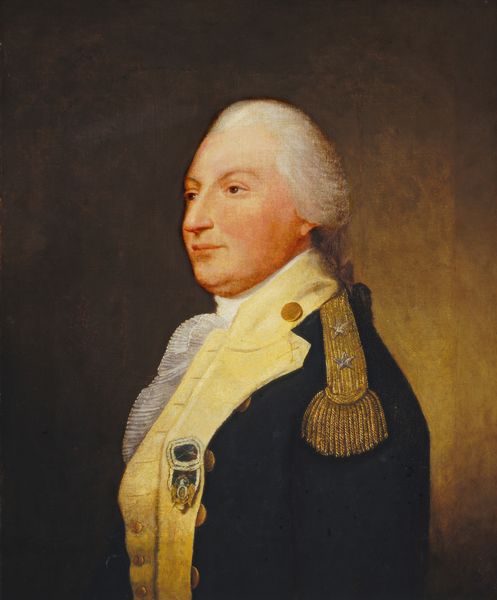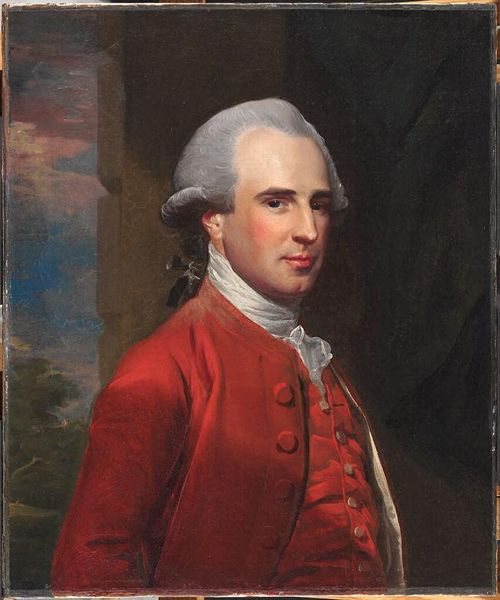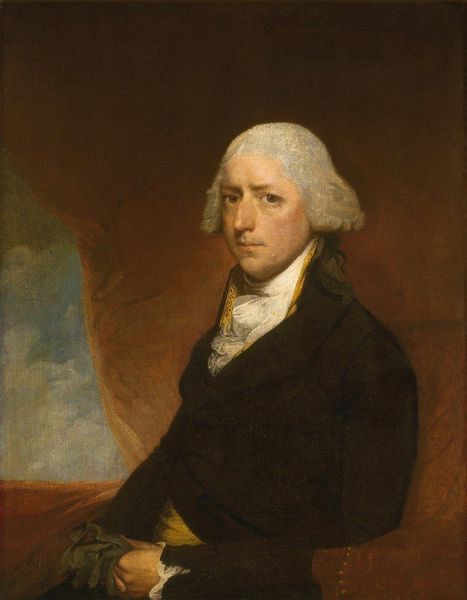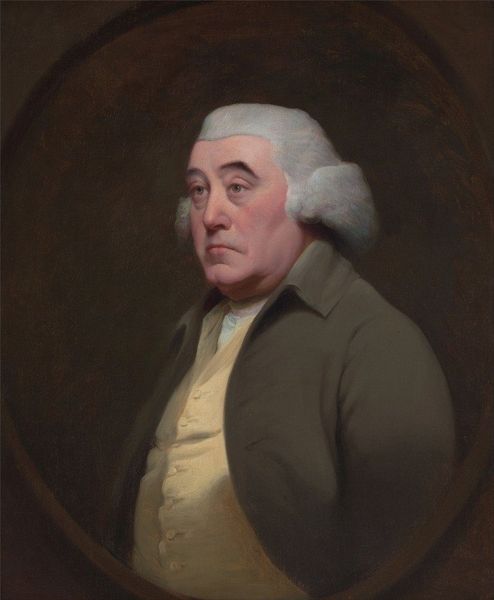
painting, oil-paint
#
portrait
#
figurative
#
neoclacissism
#
portrait
#
painting
#
oil-paint
#
figuration
#
portrait reference
#
portrait head and shoulder
#
animal portrait
#
animal drawing portrait
#
portrait drawing
#
facial portrait
#
academic-art
#
portrait art
#
fine art portrait
#
digital portrait
Copyright: Public Domain: Artvee
Gilbert Stuart painted this portrait of John Adams, likely in the late 18th or early 19th century. It’s an image intended to convey authority and statesmanship, but how does it do so? The portrait is more than just a likeness. The subject’s powdered wig, the cut of his coat, and his composed demeanor are all visual cues. These signify Adams's status as a leader in the newly formed United States. Stuart, like other portraitists of his era, operated within a set of conventions dictated by both artistic and political institutions. The demand for portraits of leading figures was driven by a desire to establish a visual culture for the young republic. To truly understand this image, we can turn to period documents, letters, and political writings. These can shed light on the social and political context in which it was produced and consumed. By considering the image within its specific historical framework, we gain a richer appreciation for its meaning and significance.
Comments
No comments
Be the first to comment and join the conversation on the ultimate creative platform.
